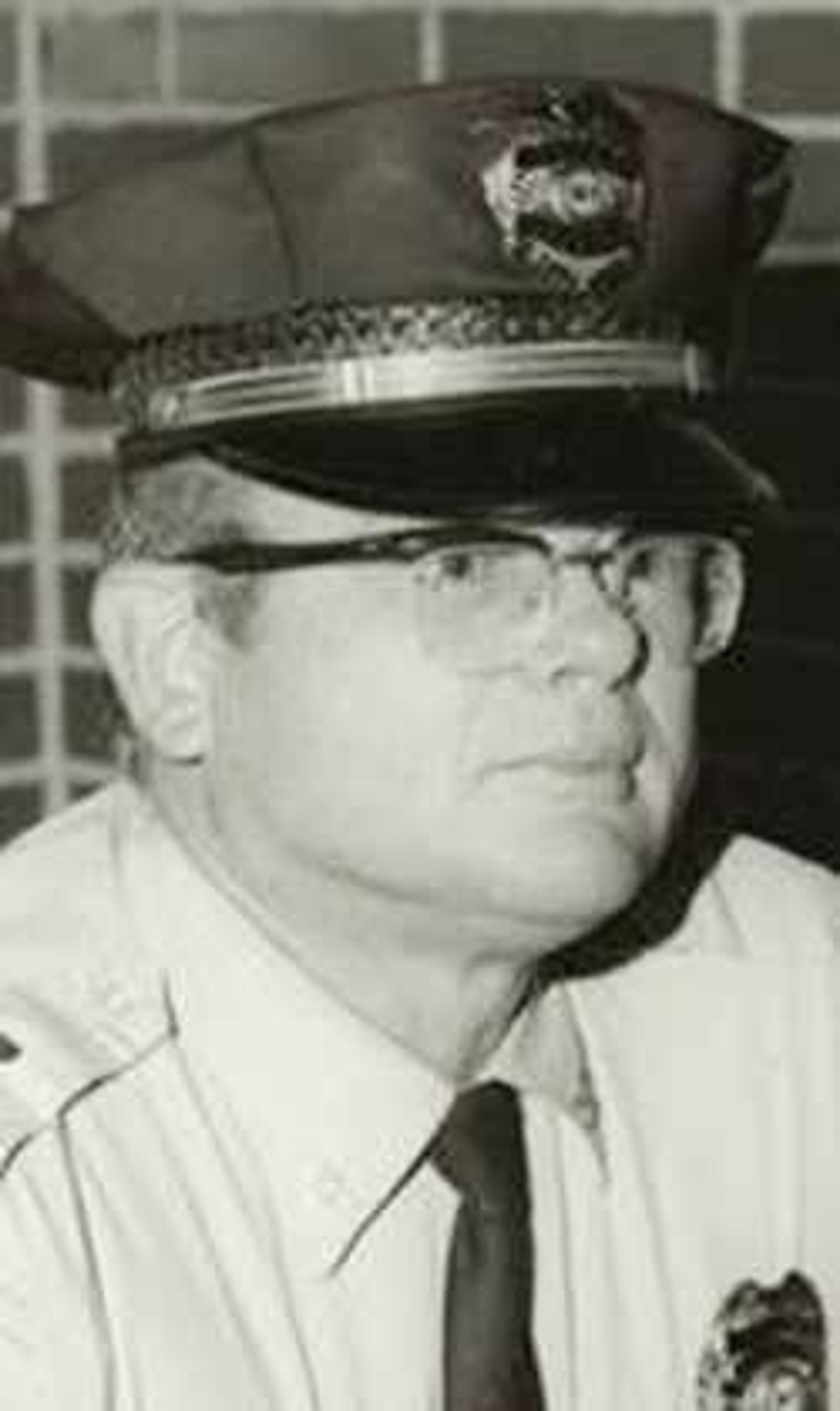Robert “Red” Clifton, who served 16 years as Jackson’s chief of police, will be remembered for helping transition the town’s police department from a small, poorly-equipped group of officers into a modern, well-trained law enforcement agency.
Clifton died Wednesday in Cape Girardeau. He was 90 years old.
Appointed to head the department in August 1974, Clifton served as chief until his retirement at the end of 1990, capping a 33-year law enforcement career.
He was only the second person to carry the title “Jackson chief of police.” Prior to David Gellatly’s three-year tenure as chief from 1971 until Clifton’s appointment, the head of the department was known as the “city marshal.”
“Red had just retired right before I came, but I knew him, I knew him well,” James Humphreys, Jackson’s current police chief, said. “He would pop in and out all the time and he’s going to be missed tremendously.”
Clifton, Humphreys said, mentored many of the department’s young officers.
“He also mentored me,” he said, “and was on the hiring board when I was going through the process of applying to be chief.”
Humphreys said he and Clifton “had long talks together, arguments together and we cried together” over the years.
“I remember to this day, right before I was named chief, he said, ‘Promise me one thing — promise you’ll be chief longer than I was,’” Humphries said. “It will be 17 years for me in May.”
No other men have served as Jackson’s chief of police longer than Clifton and Humphreys.
“I always hoped I made him proud,” Humphreys said, “and I think I did.”
According to Southeast Missourian archives, Clifton only had two jobs in his life — working at the Jackson shoe factory and as a police officer.
When Clifton was sworn in as Jackson’s fifth police officer in 1957, the department had no patrol cars, no radios and very little in the way of equipment or training.
In an interview with the Missourian a few days before his retirement in 1990, Clifton said communications between the town’s police officers was “hit or miss.”
Officers, he said, had to listen for a siren mounted on a utility pole to let them know they were needed. The officer on duty would find the nearest telephone and call the Jackson power plant to get his assignment.
“If the guy on duty at the power plant was outside the office, it would take a while for us to get the call,” Clifton recalled.
Soon after Clifton was hired, the department added its first patrol car and a two-way radio. Back then, he and the town’s four other officers operated out of a small room in the basement of the Cape Girardeau County Courthouse.
“When I was hired, the officers had no uniforms,” Clifton recalled in the article before his retirement. “They told me to wear a blue shirt, pinned a badge on me and told me I was a police officer.”
The year after he was hired, the department followed Clifton’s suggestion Jackson’s officers would look more professional if they wore uniforms. That was the first of many suggested improvements Clifton was to make during his tenure with the department.
He said that in 1957 there were only two requirements to be a police officer in Jackson — have the desire to be a peace officer and the physical ability to do the job. It would be another 22 years before Missouri would mandate a 120-hour basic law enforcement-training course.
Clifton said one of the major improvements in area law enforcement that took place while he was Jackson’s chief of police was formation of the area’s major case squad, of which he was a founding member and last of the original board members when he retired.
Clifton was the first officer in the history of the Jackson Police Department to attend the Missouri State Highway Patrol’s Law Enforcement Training Academy, and by the time he retired from the department, Jackson had 17 fully-trained officers, six patrol cars and up-to-date communications equipment, a far cry from the “siren” alert system he and his fellow officers used in the 1950s.
Connect with the Southeast Missourian Newsroom:
For corrections to this story or other insights for the editor, click here. To submit a letter to the editor, click here. To learn about the Southeast Missourian’s AI Policy, click here.








